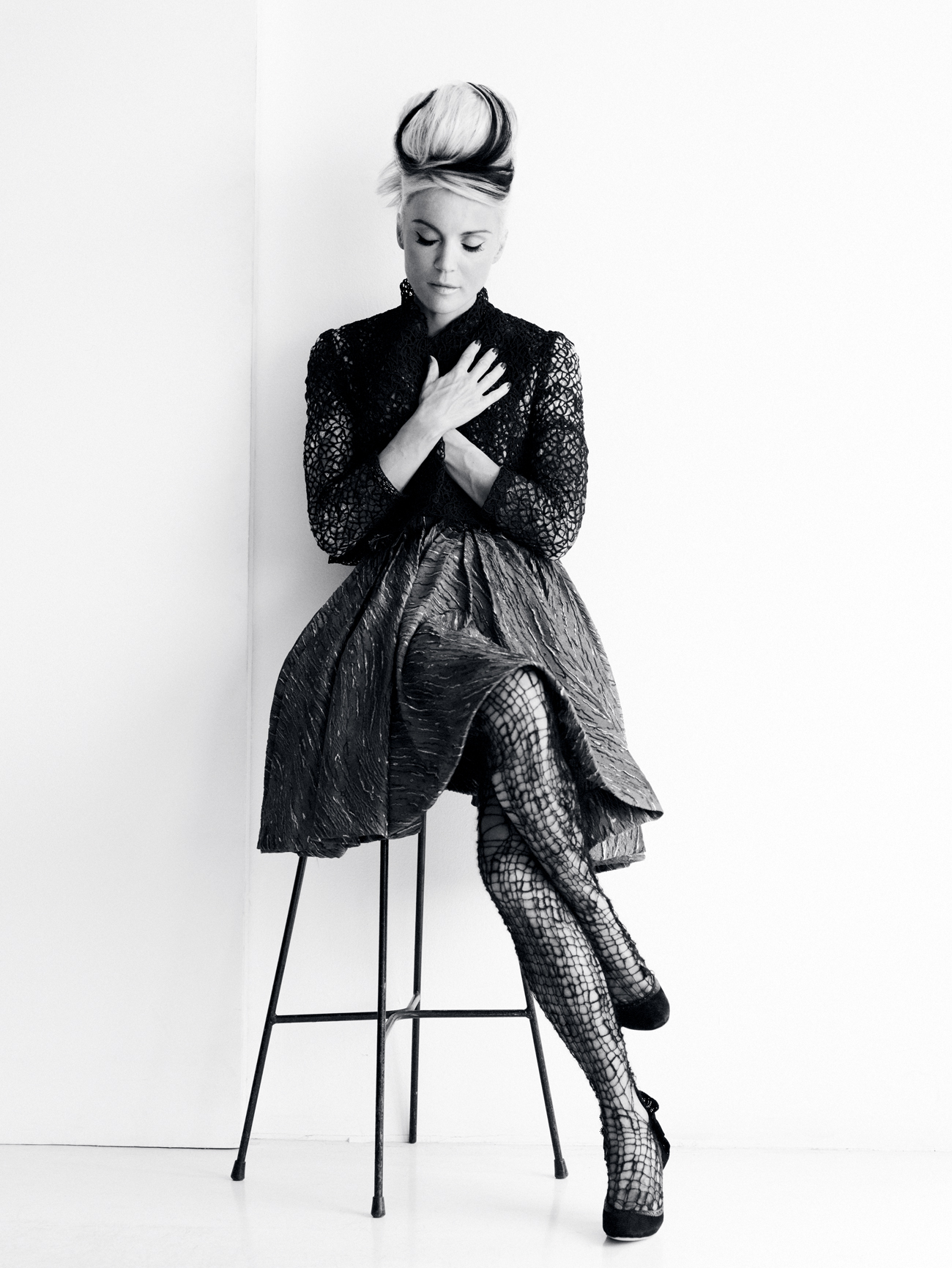Purple Magazine
— F/W 2008 issue 10
Daphne Guinness
 Black satin vest lined with silk, wrap-over black skirt lined with silk, Cascade bracelets and necklace BALENCIAGA by NICOLAS GHESQUIERE
Black satin vest lined with silk, wrap-over black skirt lined with silk, Cascade bracelets and necklace BALENCIAGA by NICOLAS GHESQUIERE
 Black charm cuffs CHRISTIAN LACROIX, black vertical veil PHILIP TREACY LONDON COUTURE and Daphne’s diamond bracelets CARTIER and ring
Black charm cuffs CHRISTIAN LACROIX, black vertical veil PHILIP TREACY LONDON COUTURE and Daphne’s diamond bracelets CARTIER and ring
 Black flower print asymmetrical zipper jacket and pants ALEXANDER MCQUEEN, white shirt CHARVET, black crystal necklace TOM BINNS and Daphne’s own ring
Black flower print asymmetrical zipper jacket and pants ALEXANDER MCQUEEN, white shirt CHARVET, black crystal necklace TOM BINNS and Daphne’s own ring
 Knit woolen top, tights and black pleated skirt RODARTE and black heels ALEXANDER MCQUEEN
Knit woolen top, tights and black pleated skirt RODARTE and black heels ALEXANDER MCQUEEN
 Velvet long coat with purple metallic embellishment L’WREN SCOTT, black collar PRADA, leggings KOVA & T, black leather gloves CHRISTIAN LACROIX and Daphne’s own earrings
Velvet long coat with purple metallic embellishment L’WREN SCOTT, black collar PRADA, leggings KOVA & T, black leather gloves CHRISTIAN LACROIX and Daphne’s own earrings
 Mirrored wool dress and cropped sleeveless peacoat jacket MARIOS SCHWAB
Mirrored wool dress and cropped sleeveless peacoat jacket MARIOS SCHWAB
DAPHNE GUINNESS the heiress with it all — literally. A glamorous mother of three and a…